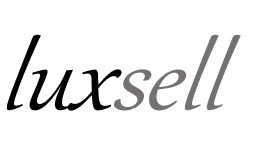 Last week I visited a well-known electronics retailer to purchase a new tablet. The battery on my own tablet was no longer holding a charge and I thought I’d try some of the new models. I visited this specific retailer knowing they had various test models on display. Of course, the devices were cabled to the display stands to prevent pilfering—this makes sense. However, as I picked up a test model an alarm went off. It wasn’t loud enough to be heard throughout the store, but it was loud enough to be annoying. I spotted a salesperson and asked for assistance. Her reply was that she wasn’t authorized to disable the alarm and I would have to wait for a tech person. After a few minutes a tech person arrived and shut off the alarm. He warned me, however, the alarm was quite sensitive and would probably go off again. He suggested I visit another area in the store dedicated to that manufacturer. I waited there approximately 10 minutes as the single salesperson assisted another customer. Frustrated, I returned to the original display and picked up a different model tablet. Guess what? More alarms! I left the store.
Last week I visited a well-known electronics retailer to purchase a new tablet. The battery on my own tablet was no longer holding a charge and I thought I’d try some of the new models. I visited this specific retailer knowing they had various test models on display. Of course, the devices were cabled to the display stands to prevent pilfering—this makes sense. However, as I picked up a test model an alarm went off. It wasn’t loud enough to be heard throughout the store, but it was loud enough to be annoying. I spotted a salesperson and asked for assistance. Her reply was that she wasn’t authorized to disable the alarm and I would have to wait for a tech person. After a few minutes a tech person arrived and shut off the alarm. He warned me, however, the alarm was quite sensitive and would probably go off again. He suggested I visit another area in the store dedicated to that manufacturer. I waited there approximately 10 minutes as the single salesperson assisted another customer. Frustrated, I returned to the original display and picked up a different model tablet. Guess what? More alarms! I left the store.
Though my shopping experience wasn’t with a luxury retailer, it started me thinking about the role of security and how it can enable, or hinder, a sale in a luxury setting. Anyone who has shopped at Gucci, Dior, Cartier, etc. has spotted that suited presence standing near the entrance wearing a discreet earpiece. Depending on your view, this presence can be intimidating, reassuring, or just part of the overall luxury experience.
The security person’s role is critical. They must expertly balance the luxury customer experience with the security of customers and staff. They are the first person you see as you enter the store. As such, they need to represent the brand impeccably. The security person’s role should also be an extension of the luxury experience. To be honest, I’ve been to several luxury stores where the only smiles and welcoming gestures I’ve received from the staff came from the security personnel.
I believe you can measure the quality of the brand by the skills and training of the security staff. While I was at Tiffany & Co., we made sure the security team went through the same training as the sales staff, including welcoming customers, selling and customer service skills, and product knowledge.
In addition to security staff, most luxury stores have security measures as well. Jewelry stores will often limit the number of pieces that can be shown to a customer at one time. Some clothing stores will restrict the number of items you can bring into a dressing room. Some will cable high-ticket items such as furs. At Balenciaga, you may have free access to trying on leather handbags, but you’ll need to find a salesperson to unlock that five-figure crocodile bag from its glass enclosure.
Maintaining strict security standards while providing a relaxed and welcoming experience to visitors has never been more important or more challenging in the luxury retail environment. What has been your experience? Have security measures ever made you feel uncomfortable or prevented you from making a purchase? Share your story in the Comments section below.
